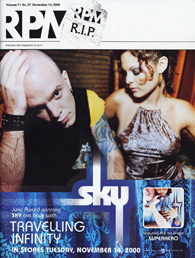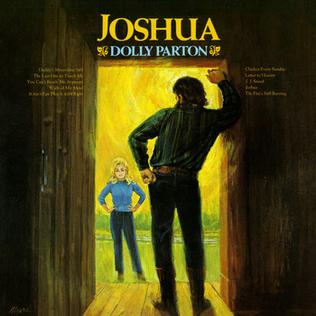Related Research Articles

"Me and Bobby McGee" is a song written by American singer-songwriter Kris Kristofferson and originally performed by Roger Miller. Fred Foster shares the writing credit, as Kristofferson wrote the song based on a suggestion from Foster. A posthumously released version by Janis Joplin topped the U.S. singles chart in 1971, making the song the second posthumously released No. 1 single in U.S. chart history after "(Sittin' On) The Dock of the Bay" by Otis Redding. Gordon Lightfoot released a version that reached number 1 on the Canadian country charts in 1970. Jerry Lee Lewis released a version that was number 1 on the country charts in December 1971/January 1972 as the "B" side of "Would You Take Another Chance On Me." Billboard ranked Joplin's version as the No. 11 song for 1971.

"MacArthur Park" is a song written by American singer-songwriter Jimmy Webb that was recorded first by Irish actor and singer Richard Harris in 1968. Harris's version peaked at number two on the Billboard Hot 100 chart and number four on the UK Singles Chart. "MacArthur Park" was subsequently covered by numerous artists, including a 1970 Grammy-winning version by country music singer Waylon Jennings and a number one Billboard Hot 100 disco arrangement by Donna Summer in 1978. Webb won the 1969 Grammy Award for Best Arrangement Accompanying Vocalist(s) for the Richard Harris version.

"One Tin Soldier" is a 1960s counterculture era anti-war song written by Dennis Lambert and Brian Potter. Canadian pop group The Original Caste first recorded it in 1969 for both the TA label and its parent Bell label.
"Pledging My Love" is a blues ballad. It was written by Ferdinand Washington and Don Robey and published in 1954.

RPM was a Canadian music-industry publication that featured song and album charts for Canada. The publication was founded by Walt Grealis in February 1964, supported through its existence by record label owner Stan Klees. RPM ceased publication in November 2000.

Joshua is the seventh solo studio album by American singer-songwriter Dolly Parton. It was released on April 12, 1971, by RCA Victor. The album was produced by Bob Ferguson. It peaked at number 16 on the Billboard Top Country Albums chart and number 198 on the Billboard 200 chart. The album's single, "Joshua", was nominated for a Grammy and was Parton's first song to reach number one on the Billboard Hot Country Songs chart.

"Let It Be Me" is a 1960 single by The Everley Brothers. The song is an English-language cover of "Je t'appartiens", which had been released as a single in France by Gilbert Bécaud in 1955. The song was a top ten hit for The Everly Brothers in the United States and spawned many additional cover versions.

"I'll Never Fall in Love Again" is a popular song by composer Burt Bacharach and lyricist Hal David that was written for the 1968 musical Promises, Promises. Several recordings of the song were released in 1969; the most popular versions were by Dionne Warwick, who took it to number 6 on Billboard magazine's Hot 100 and spent three weeks topping the magazine's list of the most popular Easy Listening songs, and Bobbie Gentry, who topped the UK chart with her recording and also peaked at number 1 in Australia and Ireland, number 3 in South Africa and number 5 in Norway.
"By the Time I Get to Phoenix" is a song written by Jimmy Webb. Originally recorded by Johnny Rivers in 1965, it was reinterpreted by American country music singer Glen Campbell on his album of the same name. Released on Capitol Records in 1967, Campbell's version topped RPM's Canada Country Tracks, reached number two on Billboard's Hot Country Singles chart, and won two awards at the 10th Annual Grammys. Broadcast Music, Inc. (BMI) named it the third most performed song from 1940 to 1990. The song was ranked number 20 on BMI's Top 100 Songs of the Century. Frank Sinatra called it "the greatest torch song ever written." It was No. 450 on Rolling Stone magazine's Top 500 Songs of All Time.

"Galveston" is a song written by Jimmy Webb and popularized by American country music singer Glen Campbell who recorded it with the instrumental backing of members of The Wrecking Crew. In 2003, this song ranked number 8 in CMT's 100 Greatest Songs in Country Music. Campbell's version of the song also went to number 1 on the country music charts. On other charts, "Galveston" went to number 4 on the Billboard Hot 100 and number one on the "Easy Listening" charts. It was certified gold by the RIAA in October 1969.

"Then You Can Tell Me Goodbye" is a song written by John D. Loudermilk. It was first released in 1962 by Don Cherry, as a country song and again as a doo-wop in 1967 by the group The Casinos on its album of the same name, and was a number 6 pop hit that year. The song has since been covered by Eddy Arnold, whose version was a number 1 country hit in 1968, and by Neal McCoy, whose version became a Top 5 country hit in 1996.
"Ribbon of Darkness" is a song written by Gordon Lightfoot that was released in 1965 as a single by Marty Robbins. The song was Robbins' eleventh number one on the U.S. country singles chart, where it spent one week at the top and a total of nineteen weeks on the chart.
"She Even Woke Me Up to Say Goodbye" is a song written by Doug Gilmore and Mickey Newbury, and recorded by American country music artist Jerry Lee Lewis. Released in September 1969, it was the first single from his album She Even Woke Me Up to Say Goodbye. The song peaked at number 2 on the Billboard Hot Country Singles chart. It also reached number 1 on the RPM Country Tracks chart in Canada.
"Invitation to Your Party" is a single by American country music artist Jerry Lee Lewis. Released in July 1969, it was the first single from his album The Golden Cream of the Country. The song peaked at number 6 on the Billboard Hot Country Singles chart. It also reached number 1 on the RPM Country Tracks chart in Canada.
"True Grit" is a song written by Don Black and Elmer Bernstein, and recorded by American country music artist Glen Campbell. It was released in July 1969 as the first single from his album True Grit. The song peaked at number 9 on the Billboard Hot Country Singles chart. It also reached number 1 on the RPM Country Tracks chart in Canada.
"The Days of Sand and Shovels" is a song written by Doyle Marsh and George Reneau, and recorded by American country music artist Waylon Jennings. It was released in April 1969 as the second single from his compilation album The Best of Waylon Jennings. The song peaked at number 20 on the Billboard Hot Country Singles chart. It also reached number 1 on the RPM Country Tracks chart in Canada.
"Rings of Gold" is a song recorded by American country music artists Dottie West and Don Gibson. It was released in February 1969 as the first single from their album Dottie and Don. The song peaked at number 2 on the Billboard Hot Country Singles chart. It also reached number 1 on the RPM Country Tracks chart in Canada.

My Life/But You Know I Love You is a studio album by American country singer-songwriter Bill Anderson. It was released in June 1969 on Decca Records and was produced by Owen Bradley. It was Anderson's eleventh studio album to be issued during his musical career. The album's title combines the names of its two singles. Both singles became major hits on the Billboard country chart.